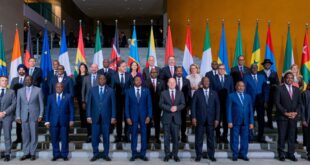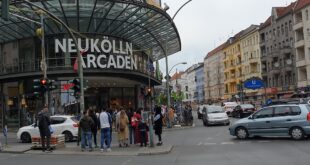The Federal Government of Nigeria and General Electric (GE) are in talks over the planned concession of railway projects in the country on the basis of Public Private Partnership.
“We are negotiating with GE to take over the narrow gauge from Lagos to Kano-Funtua-Yobe, and from Port Harcourt to Borno,” Nigeria’s Minister of Transportation, Chibuike Rotimi Amaechi, has said.
He added that the administration of President Muhammadu Buhari was committed to providing Nigerians with a good railway system.
The minister was speaking when the Global Chairman and Chief Executive Officer of GE, Jeff Immelt, and his team paid him a courtesy visit on 24 January in his office in Nigeria’s capital Abuja.
Amaechi hinted that while negotiations with GE were ongoing, Nigeria was also very much interested in how GE could revive the 25 locomotives supplied to the country by the American company during the era of the late General Sani Abacha between now and when the concession agreement would be finalised.
He emphasized that if they are revived, it would help to reduce the volume of heavy duty trucks on the roads and consequently, make the roads to last longer.
The minister also reiterated that Nigeria had received counterparts funding approval from the China Exim Bank for the Lagos-Ibadan Railway Line project. He stated that the Chinese government would contribute US$1.5billion to the project.
Speaking at the event, the Managing Director, Nigerian Railway Corporation, Fidet Okhira, said the concession scheme for the country’s rail development programme was open to public tender, revealing that five companies had already indicated interest in and GE is one of them.
Israel Ibeleme
 THE AFRICAN COURIER. Reporting Africa and its Diaspora! The African Courier is an international magazine published in Germany to report on Africa and the Diaspora African experience. The first issue of the bimonthly magazine appeared on the newsstands on 15 February 1998. The African Courier is a communication forum for European-African political, economic and cultural exchanges, and a voice for Africa in Europe.
THE AFRICAN COURIER. Reporting Africa and its Diaspora! The African Courier is an international magazine published in Germany to report on Africa and the Diaspora African experience. The first issue of the bimonthly magazine appeared on the newsstands on 15 February 1998. The African Courier is a communication forum for European-African political, economic and cultural exchanges, and a voice for Africa in Europe.

































